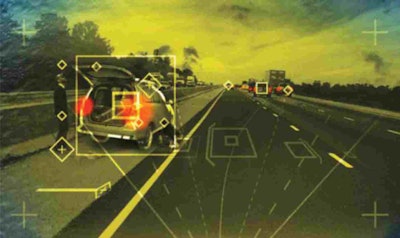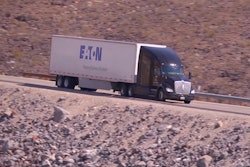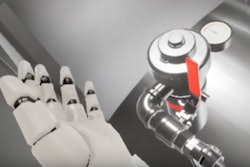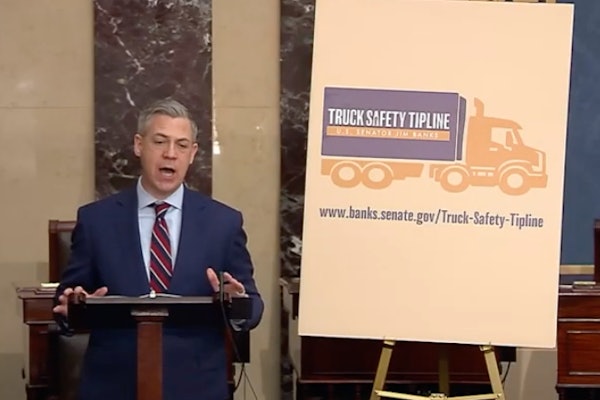
If you want to truly hamstring something in the transportation industry, let the government regulate it.
Governmental overreach via the EPA, FMCSA, DOT or a host of other made-for-acronym agencies can complicate otherwise fundamentally simple processes. But in the case of autonomy, a Wild West approach to governmental oversight is slowing down the evolution of a bubbling technology.
The industry buzzword two and three years ago, autonomy has been mostly supplanted by electrification as trend du jour.
The current case for commercial viability of electrification is about on-par with that of autonomy, but electrification has one advantage in the race to be the next big thing: It doesn’t need the stamp of approval from nearly four dozen government agencies.
The U.S. Department of Transportation just last week released its “Preparing for the Future of Transportation: Automated Vehicles 4.0,” an update of its comprehensive effort to define federal regulatory roles and identify the legislative needs that will smooth the path for implementing autonomous technologies across various transportation modes.
Something like 4.0 could go a long way in standardizing how this space evolves, which is something “self-driving” tech has lacked since its inception.
Dozens of local, state and federal statutes drafted in an attempt to create a framework for the safe testing of autonomous trucks, according to a report released in January by the American Transportation Research Institute, ultimately impede the creation of a universal autonomous truck network.
Thirty-seven states, along with the District of Columbia, have enacted legislation or issued executive orders regarding autonomous vehicles. Eight states currently authorize only testing, while 11 states plus D.C. authorize full deployment. Countless cities either have authorized or plan to take part in some kind of autonomous test with rules and regulations of their own.
“Our industry needs states to collaborate on seamless policies and regulations,” said Jeff Reed, Skyline Transportation president and chair of ATA’s Automated Truck Subcommittee. “We need more proactive federal guidance on [autonomous truck] development. Government activities at all levels must be dynamic enough to address the constantly evolving technology landscape.”
Even government rules that support autonomous truck development are often too rigid to facilitate meaningful outcomes, ATRI noted. Of the 19 states that allow testing or full deployment of automated vehicles, only 12 allow testing or deployment without a human operator in the vehicle.
Regulations that require constant control of the vehicle by both drivers and onboard engineers, ATRI said, make real-world assessment of the technology difficult if not impossible.
DOT’s 4.0 is a nice guide that does little to actually enact the kind of unilateral decision-making needed to marshal in five or more standards for autonomous driving across 50 states. The regulatory “patchwork of state laws in interstate commerce,” ATRI wrote, pigeonholes the potential use cases for autonomous technologies into “local and regional operations in locations with favorable regulatory frameworks.”
This approach also will create problems if and when drivers can apply for an autonomous vehicle exemption on a license, since states can determine how training and testing requirements are implemented but the actual endorsement is established federally.
The path to long-term viability of autonomous tech doesn’t lead through 50 states with various regulations and allowances. There needs to be a common standard just like every Wild West border town needed a sheriff.












